Captain Kidd from American Death Ballads (Downloadable)
 Instant Download
Instant Download
Details
Description
SKU: MQ.8455-4E
Composed by David Conte. Secular, 21st century. Instrument part. 9 pages. E. C. Schirmer Music Company - Digital #8455-4E. Published by E. C. Schirmer Music Company - Digital (MQ.8455-4E).English.
American Death Ballads was composed especially for tenor Brian Thorsett. We have been frequent collaborators since 2011, when he premiered the complete set of my Three Settings of W. B. Yeats for string quartet and tenor. At his urging, I transcribed and published my Three Poems of Christina Rossetti (originally for medium voice) for high voice, which he premiered at the San Francisco Conservatory in 2014. American Death Ballads was premiered by him at the San Francisco Conservatory, November 1, 2015, with pianist John Churchwell, and at the National Association of Teachers of Singing (NATS) Conference in Chicago, July 10, 2016, with pianist Warren Jones.
The choice of texts for my American Death Ballads was inspired partly by Copland’s Old American Songs, which I deeply admire, but more by my dear friend and colleague the late Conrad Susa’s Two Murder Ballads. The ingenuity of Susa’s accompaniments for his ballads in imagining anew the original source material owes a great deal to Copland’s accompaniment for his songs. Though the content of my songs is completely original and not based on preexisting melodies, I have tried to expand on this further, as the texts are much longer, and go through many different moods and characters. The four texts I chose include stories about murder, death, and dying. Though two of the texts were written in England, they traveled to the colonies almost immediately. The subjects of the texts had spent time in America, and their stories were well known to Americans.
Wicked Polly is a cautionary tale. Polly has lived a dissolute and immoral life, saying, 'I'll turn to God when I grow old.' Suddenly taken ill, she realizes that it is too late to repent. She dies in agony and is presumably sent to hell; young people are advised to heed. My musical setting is stately and preacherly in character for the narrator; for Polly it becomes pleading and remorseful.
The Unquiet Grave was brought to the attention of Alan Lomax, the great American field collector of folk music, by English folk singer Shirley Collins. The text is taken from an English folk song dating from 1400. In The Unquiet Grave, a young man mourns his dead lover too fervently and prevents her from obtaining peace. The dead woman complains that his weeping is keeping her from peaceful rest. He begs a kiss; she tells him it would kill him. When he persists, wanting to join her in death, she explains that once they were both dead their hearts would simply decay, and that he should enjoy life while he has it. My setting is in a flowing Andante with a rocking accompaniment. Three voices are delineated here: the narrator, the mournful lover, and the dead lover speaking from the grave.
The Dying Californian first appeared in the New England Diadem in 1854. Its lyrics are based on a letter from a New Englander’s sailor to his brother who is dying at sea while on the way to California to seek his fortune in the California gold fields. He implores his brother to impart his message to his father, mother, wife, and children. My setting opens with the singer alone in a moderate dirge tempo, then, joined by the piano, moves through many tonalities and moods before ending with supreme confidence as the speaker 'gained a port called Heaven/Where the gold will never rust.'
Captain Kidd was a Scottish sailor who was tried and executed for piracy and murder in 1701. The American connection to this ballad is that Kidd escaped to America and for a time lived in New York and Boston, though he was a wanted criminal by the British authorities and was extradited to Britain, where he was hung at 'Executioner’s Dock.' The lyric was printed in Britain in 1701, traveling to the colonies almost immediately. Though the didactic tone of the text is similar to Wicked Polly, it expresses no regret until the final lines: 'Take warning now by me, and shun bad company, / Lest you come to hell with me, for I must die.' My setting is fast and spirited, expressing the confidence of a man who lived life as he wanted. -David Conte.
Digital Downloads are downloadable sheet music files that can be viewed directly on your computer, tablet or mobile device. Once you download your digital sheet music, you can view and print it at home, school, or anywhere you want to make music, and you don’t have to be connected to the internet. Just purchase, download and play!
PLEASE NOTE: Your Digital Download will have a watermark at the bottom of each page that will include your name, purchase date and number of copies purchased. You are only authorized to print the number of copies that you have purchased. You may not digitally distribute or print more copies than purchased for use (i.e., you may not print or digitally distribute individual copies to friends or students).
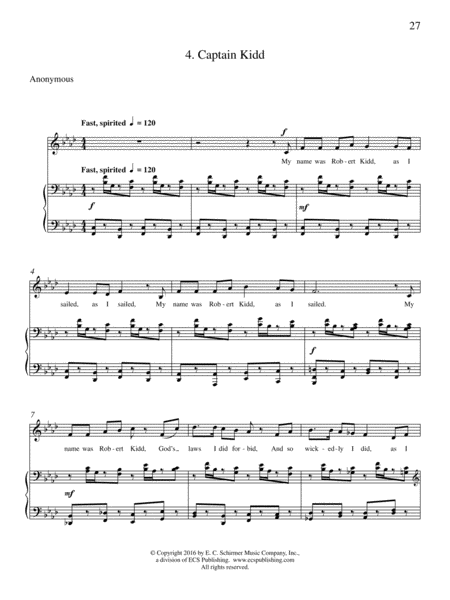
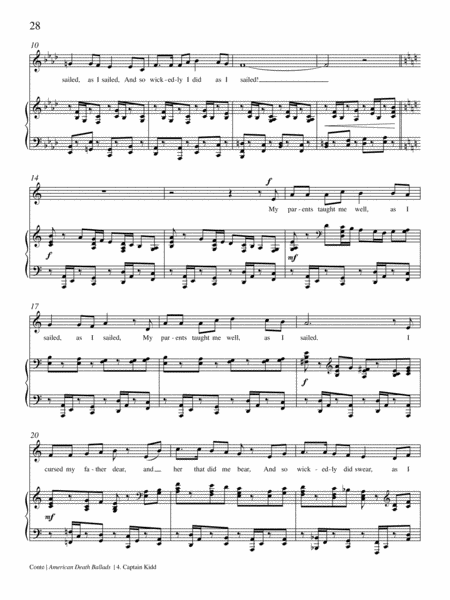
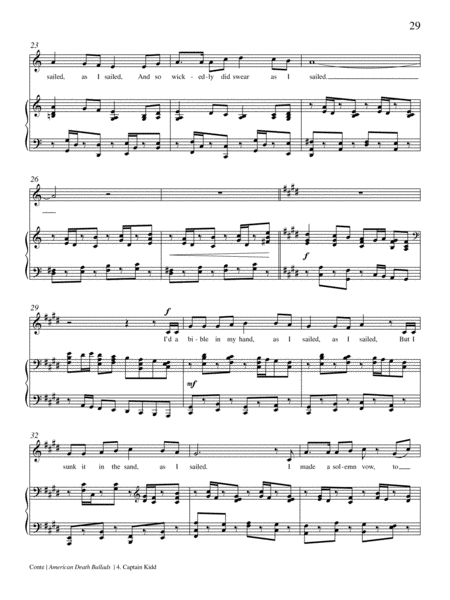
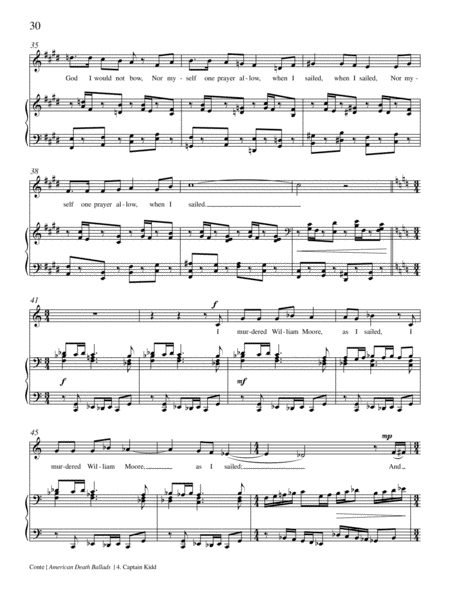
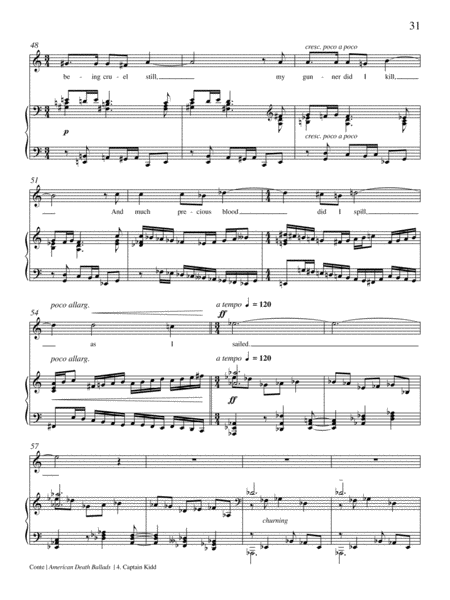
 Share
Share